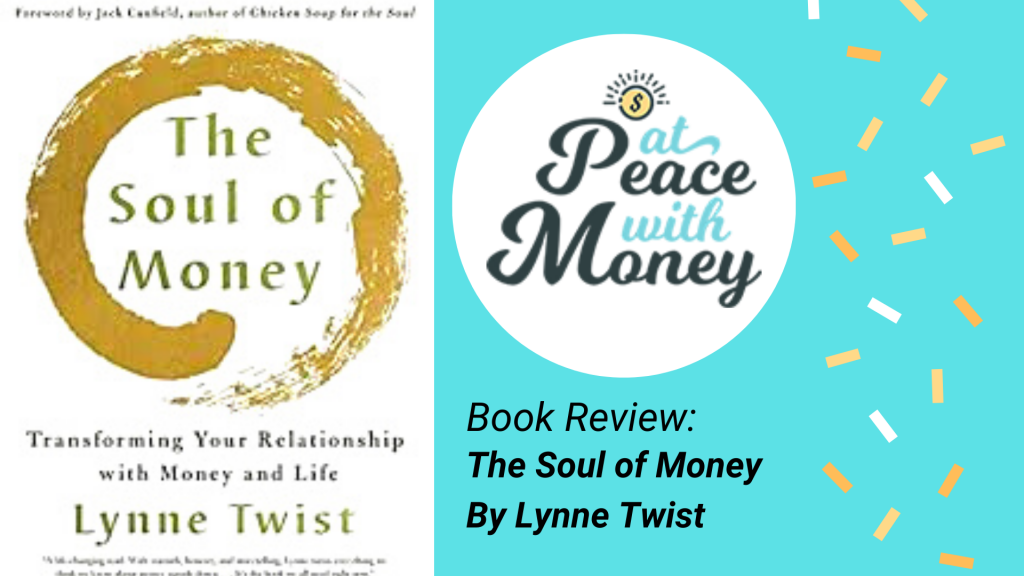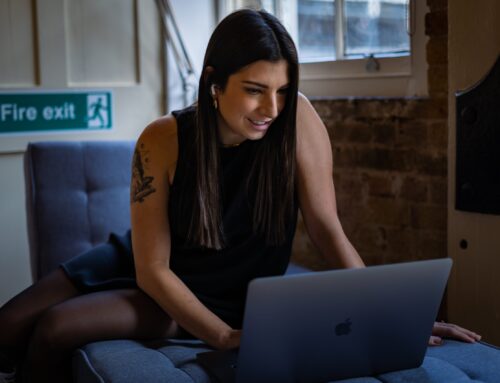
This is the time of year when we focus on giving and gratitude. While I don’t believe either should really be relegated to one season, especially when it comes to our money, I do like taking this time to really think on these themes. I recently finished The Soul of Money: Transforming Your Relationship With Money and Life by Lynne Twist and found it the perfect resource to meditate on these ideas. Lynne Twist is a recognized global visionary who has worked with people of all income levels and is committed to ending poverty and hunger. Her thoughts in this book are a beautiful exploration of being intentional and in alignment with your money. Here are four takeaways I enjoyed from this book, that you might too!
Scarcity vs. Sufficiency
One of the key tenets of this book is Lynne Twist’s definitions of sufficiency and scarcity mindsets. She posits that,
“Scarcity speaks in terms of never enough, emptiness, fear, mistrust, envy, greed, hoarding, competition, fragmentation, separateness, judgment, striving, entitlement, control, busy, survival, outer riches…Sufficiency speaks in terms of gratitude, fulfillment, love, trust, respect, contributing, faith, compassion, integration, wholeness, commitment, acceptance, partnership, responsibility, resilience, and inner riches.”
This quote offers some excellent perspective for self-examination. How frequently are we acting from a place of scarcity or sufficiency?
Lynne also discusses how the assumed scarcity that our monetary system and culture are both built on reinforces inequality of all kinds. She explains how when we accept scarcity, we also accept that some will not have enough, and that perhaps they don’t have enough because they are “less than.” She explains,
“When we believe that more is better, and equate having more with being more—more smart or more able—then people on the short end of that resource stick are assumed to be less smart, less able, even less valuable, as human beings. We feel we have permission to discount them. When we believe that’s just the way things are, then we assume a posture of helplessness. We believe that a problem is unsolvable. We accept that in our human family neither the resource-rich members nor the resource-poor members have enough money, enough food, or enough intelligence or resourcefulness to generate lasting solutions.”
Working from a place of sufficiency can help us transcend that place of helplessness and accepting inequality.
Sufficiency Opens Up Energy
The author also remarks on how, when we let go of scarcity and stop going after things we don’t really want or need, this “frees up oceans of energy to make a difference with what you have. When you make a difference with what you have, it expands.” She also remarks, “when people [a]re able to align their money with their deepest, most soulful interests and commitments, their relationship with money bec[omes] a place where profound and lasting transformation c[an] occur.” This reminds me of the concept I come back to often; knowing your money why. It’s so important to align your finances with that which is truly important and valuable to you!
Our Conversations Are Our Reality
If you look at the first quote I pulled about scarcity versus sufficiency, you’ll notice Lynne says “Scarcity speaks…”. In her book, she makes a point to discuss how our words and thoughts are connected, and work together to create the conditions we find ourselves in. Take a look at how sufficiency speaks. What if your conversations centered around gratitude and possibility? Surely sticking with that can have a positive effect. Imagine approaching your money with that attitude!
On the whole, this book is inspiring and eloquently written. Lynne Twist does a great job articulating a philosophy that I hold dear in my practice at At Peace With Money. She emphasizes how important it is to align with our true values, claim our power, and work to create transformation, for ourselves and others.
If you enjoyed this article, check out my other book recommendations! I’ve got a great collection of my faves that can help you explore your relationship with money.
Angela






